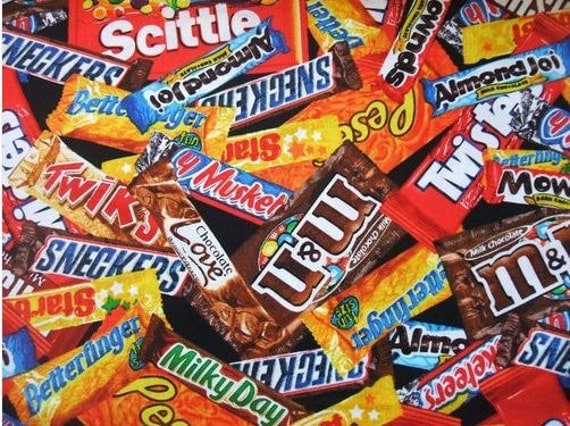I'm bored. Let me get lisa to stop bullying people so people can speak up.
My degrees include public health, psychology, and sociology, and I can (and will) properly defend this. I can be a bit of an ass too, but I at least, have a degree from a school to back it as opposed to simply believing that whatever ignorant and uneducated stance I take is right just because im smrt. So you're arguing less against me and more against the centuries of combined education and research my professors have. But first:
When you actually pay attention to the news, you know this kind of random trivia off the top of your head and don’t need to confirm every statement with Google just to be sure~ it shouldn’t be my job to source common knowledge for you guys all the time.
It is your "job."
When you make an argument that relies on facts (i.e., it is immediately debunked and discredited if facts are shown to be the contrary), then we can simply say "I don't believe focal fact" and the discussion can go no further. Sometimes, a fact should appear reasonable enough. But other times, you have to show that a fact is a fact or why it's a reasonable statement, at least. Otherwise, we have different understandings. Sociologically speaking, shared understandings is the basis of language (and is also the basis of discussion and debate on any online forum.) So you can make a statement. A strong one, actually.
But anyone who doesn't believe in the statistics you use can just ignore you and rightfully so. You have to show a solid source for such facts if someone doesn't reasonably believe it or let people argue around it. You can't be all "But I just said this." Or what you say here: I saw it on television.
…Further, the fact that you say that you're citing news outlets for facts is concerning in and of itself. I get it's a hassle to run down every single source for every single factoid. Just state your facts, say you can't find it but you believe the source, and go from there.
lmfao shut up if you’re even trying to justify this at all.
…You're the one talking outside of your field. I could more readily and reasonably tell you the same thing.
From what I saw with you and Particle Mare on another health/food related debate on Facebook, most of what you say is just harshness meant to antagonize those opposed to your stance. It doesn't make your stance any stronger, but you just strongarm yourself into angering someone else, and that just makes for good entertainment as opposed to a good debate or discussion. You have outstanding logic and somewhat questionable values that make for great commentary.
But no one will even deal with you if you're beating them down by saying they don't even get to have a say.
What then? Are you here just to have people upvote your opinion? Are we here on the board "Serious Debate" just to agree with each other?
Just showing how smart you are does nothing. It becomes a thread where anyone who opposes your opinion, right or wrong, doesn't even contribute anymore. And if people aren't able to contribute, then they'll up and leave out of boredom (because that's why we're all here originally.) You may like that if you don't think the opposing opinion is valid in the least, but being right and being wrong isn't the end-all of debate and discussion.
Especially on a rarely seen and even less frequently noted forum about memes. It ain't that serious, and no one should take anyone here that seriously unless they're whipping around a banhammer.
You can take that shit back to Facebook if you don't want people to disagree with you.
- First, there's no harm here.
The worst thing that can happen for the "oppressed" companies is that sales for sugary drinks drop. And no one is going to say that people drinking less is a bad thing. Your best argument here is that the government is unnecessarily restricting a business's ability to turn a profit, but that's not the only or even primary purpose of the US government. It is to reasonably protect the people and its liberties. So whereas businesses have liberties, there are also people that are to be protected. And I don't necessarily just mean to protect from obesity: people do have to make good health decisions for themselves.
That also includes the US massive health costs. Right now, business (by their private nature) have a ton more resources to sell the things that affect health, which affect health costs, which in turn affect all of us in taxes and/or insurance costs, which in turn affect who's employed and at what cost, which affects unemployment, underemployment, etc., etc. Because of the overwhelming power of marketing that are tapping into psychological means of persuasion that the average Joe isn't even aware of, government can step in within most people's ethics to protect people when needed. That's not always an easy call, but it's a call that needs to be made sometimes. And sometimes, you can expect the government to get it wrong, even on big issues.
The US can't be taking on this much in health costs with an already massive deficit. And if something as small as a label on a billboard can somehow (doubt it) lower sales and soda consumption, then I'm perfectly willing to have it slapped on the ass of every Coca-Cola employee if we got to.
- Second, there is (or there was a chance for) a benefit to this.
Tobacco has long been known to have a negative affect on people. It's much more obvious than that of excess sugar and its affects on obesity, but both are known (that's why this legislation seems overkill; people should know what happens if you drink too much soda and don't burn off those calories.)
But it wasn't until governments, here in the US but mostly abroad, added proper labels to tobacco products did they have an effect on sales. You need moving labels, you need more than just the text "This is bad for your health, heard?," you need pictures of the effects of a particular, related health condition…
The Truth campaign was effective in lowering adolescent tobacco use rates, because it was more than just a boring ad that you learned to ignore no matter if you used tobacco or not.
So given how smart big tobacco is, I wouldn't be surprised if this decision was actually a compromise from soda companies to buy time in order either to minimize the effect of the warnings or to even increase sales of such drinks. Big tobacco was able to get children to smoke by turning their campaign from stuff like cartoon images to a sign of being "older" and "more mature." The warnings merely helped tobacco create that marketing.
I'm betting that these warnings will merely be vague text, will not include pictures of anything, and they won't move to different areas of the ad. That can be tweaked to a benefit, but it's more likely minimized to have little to no effect on sales.
Psychologically speaking, pictures will work better than lengthy text (the immediate and lasting stimulus).
Moving labels prevent overexposure (i.e., getting used to ads on the side of a page).
And specificity does a better job of reminding the consumer what can happen with overindulgence.
Here's a fact sheet from an anti-tobacco organization of some note about what ads work and what doesn't.












